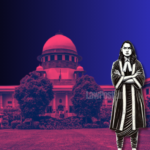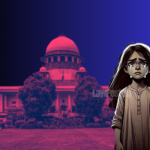The Supreme Court of India is set to hear a Public Interest Litigation (PIL) seeking a court-monitored probe by the Central Bureau of Investigation (CBI) into the honey-trap scandal in Karnataka that allegedly involves a senior minister, judges, and several legislators.
The petition, filed by Jharkhand-based advocate Binay Kumar Singh, was mentioned before Chief Justice of India (CJI) Sanjiv Khanna, who stated that the matter would be listed for hearing on Tuesday, March 26.
Allegations Spark Political Storm
The controversy erupted when Congress’s Minister for Cooperation, KN Rajanna, claimed in the Karnataka Assembly on March 20 that he was a target of a honey-trap attempt by a gang that had allegedly trapped 47 others across party lines, including judges.
The allegations led to massive political unrest, with protests in the assembly resulting in the suspension of 18 BJP MLAs. Amid rising demands for an impartial investigation, the PIL argues that such incidents pose a direct threat to judicial independence and could compromise the integrity of verdicts.
PIL Raises Alarm Over Judicial Independence
The petitioner asserts that honey-trapping judges could lead to blackmail, affecting their ability to deliver fair verdicts. The PIL emphasizes:
“An independent judiciary is the cornerstone of any democracy. Judges are expected to uphold the law without fear, favor, or external influence. However, if allegations of judges being honey-trapped hold any truth, it raises alarming concerns about the erosion of judicial independence, which, in turn, threatens the very fabric of democracy.”
Further, the plea warns that a compromised judiciary could allow executive and legislative overreach, reducing courts to mere rubber stamps.
“A judiciary tainted by external influence ceases to be a check on executive and legislative overreach. If judges are susceptible to blackmail, the courts may no longer serve as the bulwark against authoritarianism, corruption, or corporate greed,” the petition states.
With the Supreme Court set to examine the case tomorrow, all eyes will be on how the judiciary responds to this high-stakes legal and political crisis.








